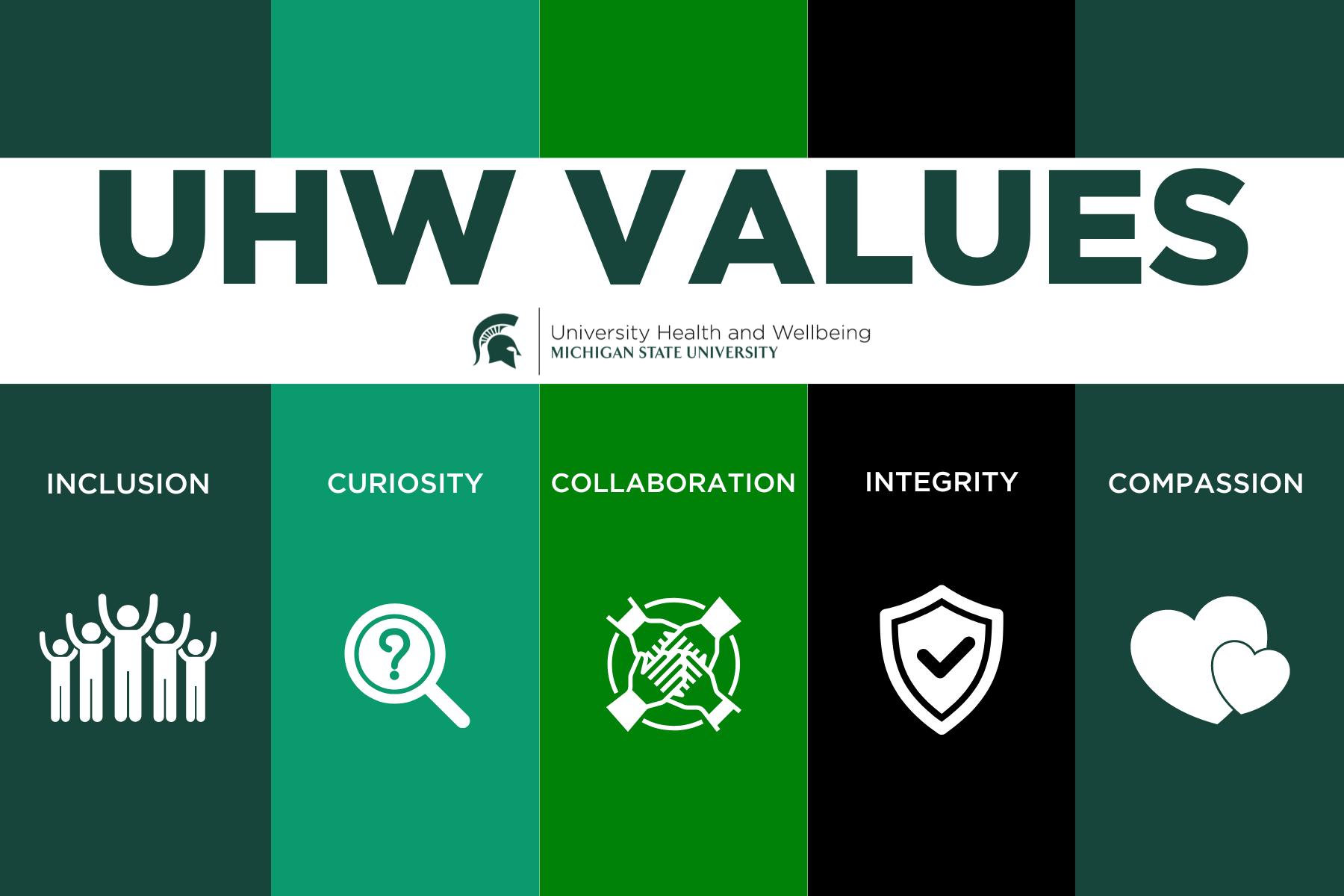To guide our work, we have adopted the Inter-Association Definition of Wellbeing, which defines wellbeing as “an optimal and dynamic state that allows people to achieve their full potential”. 1
We also adopted a more inclusive definition of health from the Disability and Health Journal: “Health is the dynamic balance of physical, mental, social, and existential wellbeing in adapting to conditions of life and the environment. Health is dynamic, continuous, multi-dimensional, distinct from function, and determined by balance and adaptation.” 2
Our Purpose
Support the university community with health and wellbeing equitably woven throughout all aspects of Spartan life, enhancing accessibility and safety through a culturally sensitive and holistic lens.
Our Vision
To achieve recognition as a premier health promoting university by 2030.
Our Legacy
University Health and Wellbeing has a rich history of caring for the health and wellbeing of Spartans that starts back in the late 1800s.
.png%3Fh%3D1080%26iar%3D0%26w%3D1920&w=3840&q=75)
Our Values
As an institution of higher learning, Michigan State University is committed to the highest ethical and academic standards. As a public institution, we are committed to transparent decision making and accountable governance. As a community, we commit to living these values.
At University Health and Wellbeing, our values support our purpose. They articulate how we engage with each other and those we serve. They inspire us on our journey to become the premier health promoting university by 2030.

1. NIRSA: Leaders in Collegiate Recreation, NASPA - Student Affairs Administrators in Higher Education & ACHA - American College Health Association (November 2020). Inter-association definition of well-being. Retrieved from www.nirsa.org/hands-in
2. Krahn, G. L., Robinson, A., Murray, A. J., Havercamp, S. M., Havercamp, S., Andridge, R., Arnold, L. E., Barnhill, J., Bodle, S., Boerner, E., Bonardi, A., Bourne, M. L., Brown, C., Buck, A., Burkett, S., Chapman, R., Cobranchi, C., Cole, C., Davies, D., . . . Witwer, A. (2021). It’s time to reconsider how we define health: Perspective from disability and chronic condition. Disability and Health Journal, 14(4), 101129. https://doi.org/10.1016/j.dhjo.2021.101129
